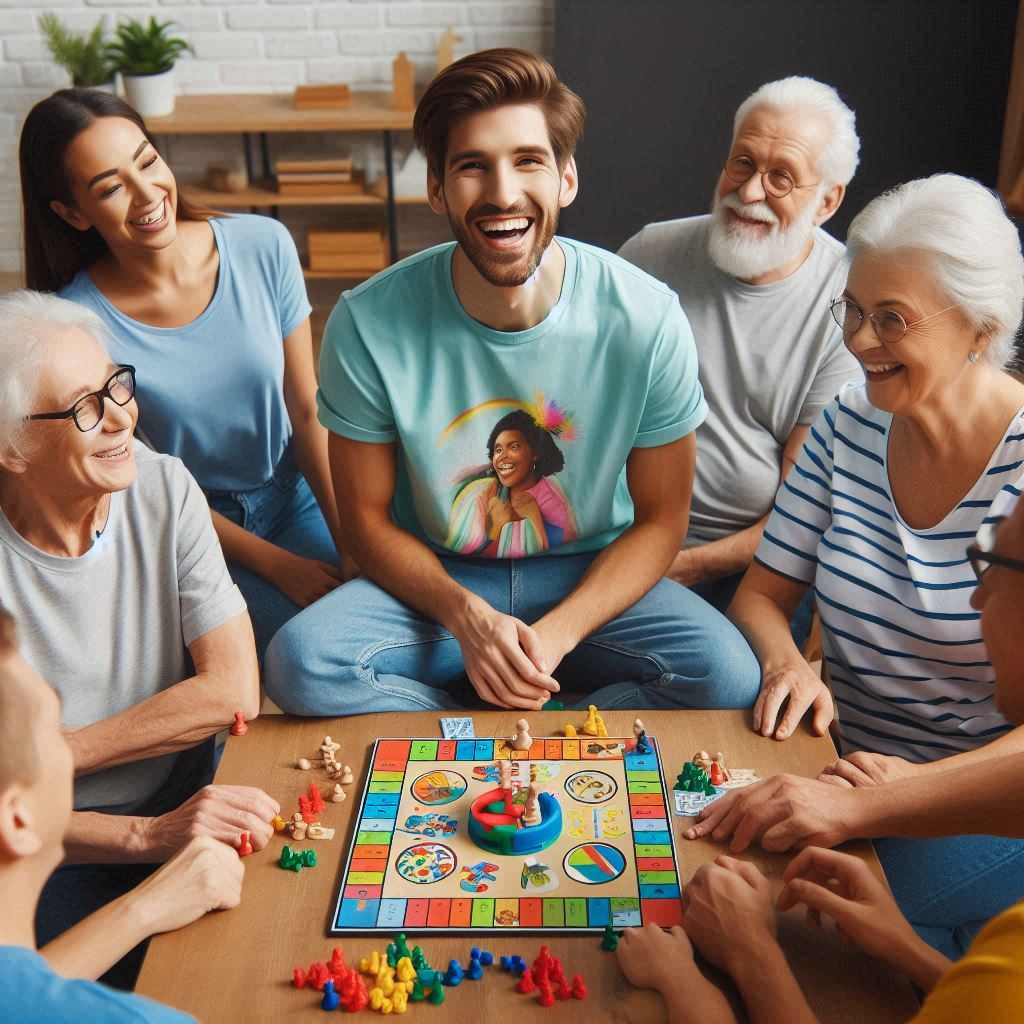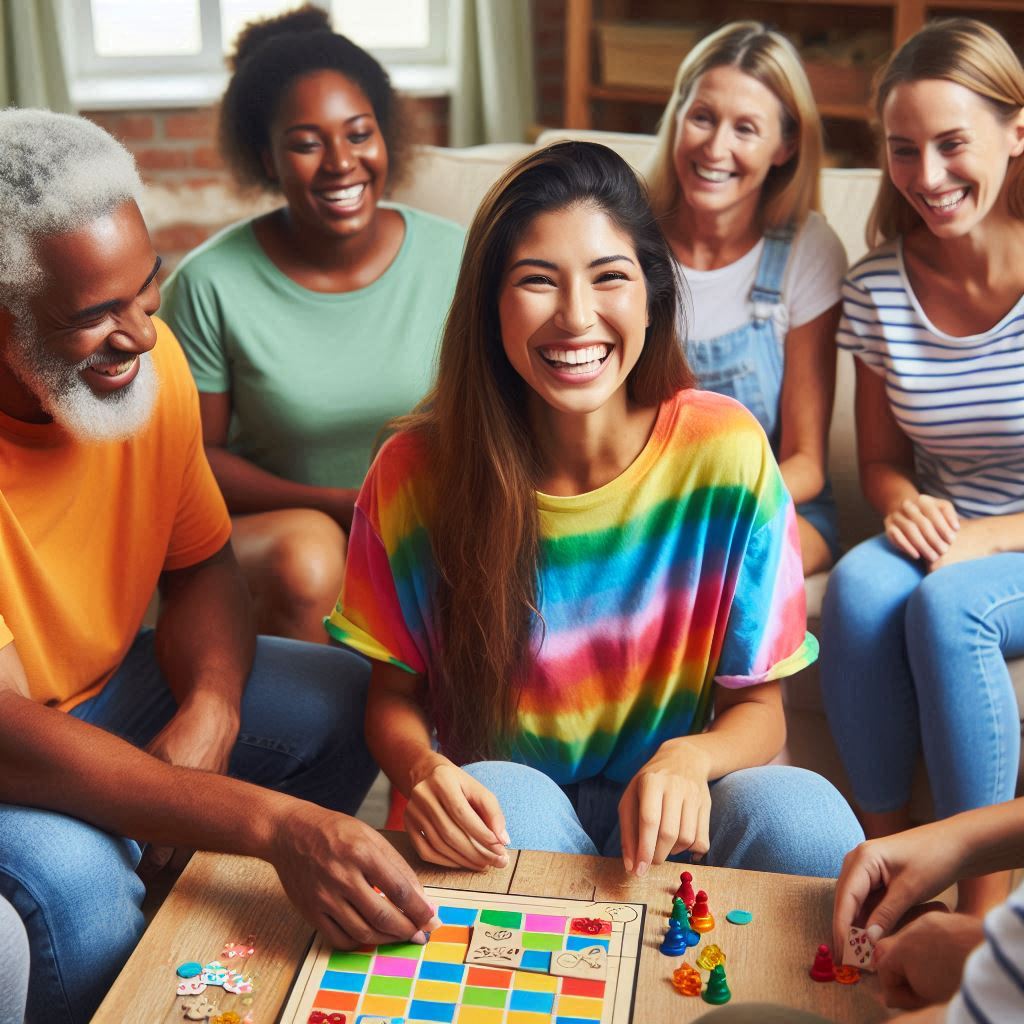Introduction
Community-based recreational therapy programs play a crucial role in enhancing the lives of individuals facing disabilities or mental health issues. These programs leverage recreational activities to foster physical, emotional, and social well-being.
These programs are designed to provide therapeutic interventions through structured recreational activities.
Unlike clinical settings, community-based programs offer a more relaxed environment where participants engage in various recreational pursuits.
For individuals with disabilities, these programs offer a vital outlet for physical activity and social interaction.
Participation in recreational activities promotes physical health, improves motor skills, and boosts self-esteem.
Benefits for Mental Health Issues
Similarly, for those with mental health challenges, recreational therapy serves as a powerful therapeutic tool.
Activities such as art, music, sports, and outdoor adventures alleviate stress, reduce symptoms of anxiety and depression, and enhance mood.
Engagement in community-based recreational programs contributes significantly to overall well-being.
Regular participation leads to improved physical fitness, enhanced cognitive function, and a greater sense of belonging and community integration.
Beyond physical and mental health benefits, these programs enrich the quality of life for participants.
They provide opportunities for personal growth, skill development, and the cultivation of meaningful relationships.
Unlike traditional medical interventions, recreational therapy takes a holistic approach by addressing the individual’s physical, emotional, and social needs.
This comprehensive approach ensures a more balanced and sustainable improvement in overall health.
Community Integration and Support
By participating in local recreational activities, individuals with disabilities or mental health issues become integrated into their communities. This integration fosters a sense of acceptance, inclusion, and support from peers and neighbors.
Case Studies and Success Stories
Numerous studies and anecdotes highlight the positive impact of these programs. Participants often report increased happiness, reduced isolation, and greater independence in daily life.
In a nutshell, community-based recreational therapy programs are invaluable for individuals with disabilities or mental health issues.
They not only improve physical and mental well-being but also enhance overall quality of life through meaningful engagement and community integration.
As awareness grows and resources expand, these programs will continue to evolve, catering to a broader spectrum of needs and promoting inclusivity in recreational opportunities.
Types of community-based recreational therapy programs
Outdoor Activities
Outdoor activities such as hiking, camping, or fishing are great ways to engage in physical exercise while enjoying nature. These activities can help individuals improve their physical health, as well as their mental well-being.
Being outdoors and surrounded by nature has been shown to reduce stress and improve mood. It also provides a sense of freedom and independence, which can boost self-esteem.
Art and Music Therapy Sessions
Art and music therapy sessions involve engaging in creative activities that promote self-expression and emotional healing. These sessions can be beneficial for individuals who may have difficulty expressing themselves verbally.
Art therapy allows individuals to explore their feelings through various art forms, such as painting, drawing, or sculpting.
Music therapy uses music to improve physical and emotional well-being, reduce stress, and enhance creativity.
Sports Leagues or Fitness Classes
Participating in sports leagues or fitness classes is a great way to stay active and socialize with others. Physical activity has numerous benefits for both physical and mental health.
It can help improve cardiovascular health, strengthen muscles, and boost overall well-being. Sports leagues also provide opportunities for teamwork, communication, and leadership skills development.
Animal-Assisted Therapy Programs
Animal-assisted therapy programs involve interactions with animals to promote emotional and physical healing. Research has shown that spending time with animals can reduce anxiety, depression, and feelings of loneliness.
Animals can provide comfort, companionship, and a sense of security to individuals participating in these programs. In addition, caring for an animal can teach responsibility and empathy.
Benefits of participating in community-based recreational therapy programs
Benefits of participating in community-based recreational therapy programs:
Improved physical health through exercise and outdoor activities
Engaging in various physical activities like group sports, hiking, and yoga can help improve overall physical health. Regular exercise can strengthen muscles, improve flexibility, and boost cardiovascular health.
Boost in mental and emotional well-being from social interactions and creative outlets
Interacting with others in a supportive and social setting can help reduce feelings of isolation and loneliness. Engaging in creative activities like art therapy or music therapy can also provide an emotional outlet and reduce stress.
Increased sense of belonging and community support
Participating in community-based recreational therapy programs can help individuals feel a sense of belonging and connection to others. Being part of a supportive community can provide comfort, encouragement, and a safety net during challenging times.
Enhanced self-esteem and confidence
Achieving personal goals, gaining new skills, and receiving positive feedback from peers and instructors can boost self-esteem and confidence. Engaging in recreational therapy programs can help individuals develop a sense of accomplishment and pride in their abilities.
Transform Your Career Today
Unlock a personalized career strategy that drives real results. Get tailored advice and a roadmap designed just for you.
Start NowRead: How Genetic Counseling Improves Patient Care
How to find and join a community-based recreational therapy program
Finding and Joining a Community-Based Recreational Therapy Program
Are you interested in joining a community-based recreational therapy program but not sure how to get started? Here are some tips on how to find and join these programs:
Researching Local Organizations or Community Centers
Start by researching local organizations or community centers that offer recreational therapy programs.
You can do this by searching online, asking for recommendations from friends or family members, or contacting your local health department for a list of programs in your area.
Contacting Program Coordinators or Therapists
Once you have a list of potential programs, reach out to program coordinators or therapists for more information. They can provide you with details about the types of activities offered, eligibility requirements, and schedules.
Attending Orientation Sessions or Open Houses
Many community-based recreational therapy programs host orientation sessions or open houses for prospective participants.
Take advantage of these opportunities to learn more about the program, meet the staff, and get a feel for the environment.
Completing Necessary Paperwork or Assessments
Before joining a program, you may need to complete some necessary paperwork or assessments. This could include medical forms, waivers, or assessments to determine your needs and goals.
Make sure to submit these documents in a timely manner to secure your spot in the program.
By following these steps, you can easily find and join a community-based recreational therapy program that meets your needs and interests.
Remember, participating in these programs can have numerous benefits for your physical, emotional, and social well-being. So don’t hesitate to get involved and start enjoying the benefits of recreational therapy.
Read: Genetic Counseling for Inherited Disorders
Success stories and testimonials from individuals who have benefited from these programs
Personal anecdotes of how participation in a recreational therapy program has positively impacted their lives
- A young adult with autism shared how the program provided a safe space for them to express themselves and build social connections.
- A military veteran described how participating in outdoor recreational activities helped them manage PTSD symptoms and regain a sense of purpose.
- A senior citizen mentioned how engaging in art therapy sessions helped them rediscover their passion for creativity and boosted their overall mood.
Improved social skills, coping mechanisms, or physical abilities after attending these programs
- Participants reported feeling more confident in social settings and better equipped to handle stressful situations.
- Many individuals noted enhanced physical strength, coordination, and flexibility as a result of engaging in recreational therapy activities.
- Several participants mentioned learning effective stress management techniques and coping strategies that they could apply in their daily lives.
Highlighting specific achievements or milestones reached through program participation
- One participant shared how they were able to conquer their fear of heights by completing a high ropes course during the program.
- Another individual celebrated reaching a weight loss goal after consistently attending fitness classes offered through the therapy program.
- Many participants expressed pride in their ability to successfully navigate outdoor challenges and obstacles during adventure therapy sessions.
By sharing these success stories and testimonials, it is evident that community-based recreational therapy programs play a vital role in enhancing the well-being and quality of life for individuals of all ages and backgrounds.
The impact of these programs goes beyond just physical activity, as they also provide a supportive environment for personal growth, skill development, and social engagement.
Participants have not only seen improvements in their social skills, coping mechanisms, and physical abilities but have also celebrated significant achievements and milestones thanks to their involvement in these programs.
This further underscores the importance and effectiveness of community-based recreational therapy programs in promoting holistic wellness and empowering individuals to lead fulfilling lives.
Read: How Genetic Counselors Help with Rare Diseases

Gain More Insights: Clinical Social Worker Salary and Benefits Guide
Challenges and barriers to accessing community-based recreational therapy programs
When it comes to accessing community-based recreational therapy programs, there are several challenges and barriers that individuals may face.
These obstacles can range from limited availability or funding for programs to transportation issues and misconceptions about the benefits of recreational therapy.
Limited availability or funding for these programs in certain communities
One of the primary challenges to accessing community-based recreational therapy programs is the limited availability or funding for these programs in certain communities.
This can be due to a lack of resources or support from local government or organizations.
In some areas, there may be a high demand for recreational therapy programs, but limited funds to support them.
This can result in long waitlists or restricted access for individuals who could benefit from these programs.
Transportation issues for individuals with disabilities or mobility challenges
Transportation can be a significant barrier for individuals with disabilities or mobility challenges who are interested in participating in community-based recreational therapy programs.
Lack of accessible transportation options can prevent people from attending sessions or events.
Even if a recreational therapy program is available in a local community, individuals may struggle to get to the location due to transportation barriers.
This can limit their ability to take part in beneficial activities and social interactions.
Stigma or misconceptions about recreational therapy and its benefits
Stigma and misconceptions about recreational therapy can also act as barriers to accessing these programs.
Some individuals may not fully understand the benefits of recreational therapy or may hold negative beliefs about participating in such activities.
There may be a perception that recreational therapy is only for certain populations, such as children with disabilities, and not for the general public.
This misconception can deter individuals from exploring the opportunities available in community-based programs.
Lack of awareness about the existence of these programs in a local area
Another common challenge is the lack of awareness about the existence of community-based recreational therapy programs in a local area.
Individuals may not know where to look for information or how to access these programs, leading to missed opportunities for participation.
Showcase Your Business Today
Reach thousands of readers actively exploring professional services. Publish your business profile and grow your audience now.
Publish NowWithout proper promotion and outreach efforts, recreational therapy programs may go unnoticed by those who could benefit from them.
Increasing awareness about the availability and benefits of these programs is essential for improving access for all community members.
In review, addressing these challenges and barriers to accessing community-based recreational therapy programs is crucial for ensuring that all individuals have the opportunity to participate and benefit from these valuable services.
By increasing funding, improving transportation options, combating stigma, and raising awareness, communities can create more inclusive and accessible recreational therapy programs for everyone.
Read: Genetic Testing and Counseling: An Overview
Uncover the Details: Essential Skills Every Home Health Aide Needs
Ways to support and advocate for expansion of community-based recreational therapy programs
Volunteering and Fundraising: A Grassroots Approach
Volunteering time or fundraising efforts directly impact local organizations offering recreational therapy programs. Whether assisting in sessions or organizing events, every contribution strengthens program sustainability.
Advocating for Increased Funding: Ensuring Long-Term Viability
Advocacy plays a pivotal role in securing financial support for recreational therapy services. By lobbying government bodies or private donors, communities can ensure these programs receive necessary funding to thrive and expand.
Educating About Benefits: Shaping Public Perception
Educating the public about recreational therapy’s profound benefits is crucial. Highlighting its positive impact on individuals with disabilities or mental health issues fosters understanding and garners broader support for program expansion.
Collaborating with Community Leaders: Driving Policy Change
Collaboration with local leaders and policymakers is instrumental in fostering program growth. By advocating for policies that prioritize recreational therapy, communities create sustainable frameworks that support ongoing development.
In supporting community-based recreational therapy programs, active involvement is paramount.
Each action, whether volunteering, advocating for funding, educating others, or collaborating with leaders, contributes significantly to program expansion and sustainability.
Volunteering and Fundraising: Making a Direct Impact
Volunteering allows firsthand participation in therapy sessions, enriching experiences for participants and volunteers alike. Fundraising events not only raise crucial funds but also amplify community awareness and engagement.
Advocating for Increased Funding: Securing Future Opportunities
Advocacy efforts should target governmental bodies and potential sponsors. Emphasizing the tangible benefits of recreational therapy encourages financial investment, ensuring ongoing program availability and growth.
Educating Others: Spreading Awareness and Understanding
Educational initiatives dispel misconceptions about recreational therapy, emphasizing its role in enhancing quality of life. By fostering a deeper understanding, communities cultivate empathy and support for program expansion efforts.
Collaborating with Community Leaders: Influencing Policy for Change
Engaging with local leaders cultivates partnerships essential for policy development. By aligning recreational therapy with community health agendas, leaders can enact sustainable policies that facilitate long-term program success.
In closing, supporting and advocating for community-based recreational therapy programs requires concerted effort from all stakeholders.
Whether through hands-on involvement, financial advocacy, public education, or policy collaboration, each action shapes the future landscape of recreational therapy accessibility and impact.
Conclusion
Community-based recreational therapy programs offer a myriad of benefits to participants, fostering physical, mental, and emotional well-being.
These programs are pivotal in promoting social interaction and reducing isolation among individuals facing various challenges.
By engaging in structured recreational activities within their local communities, participants experience improved physical health outcomes.
Activities such as hiking, swimming, and yoga not only enhance cardiovascular fitness but also contribute to overall wellness.
Moreover, these programs play a crucial role in addressing mental health issues by providing a positive outlet for stress relief and promoting relaxation.
Through activities like art therapy and mindfulness sessions, participants can effectively manage anxiety and depression.
Encouraging Participation for Enhanced Well-being
It is essential for individuals to explore and actively participate in these community-based programs to reap the full spectrum of benefits.
By joining these activities, individuals can enhance their quality of life and build meaningful connections with others in similar circumstances.
Through shared experiences and mutual support, participants often find renewed confidence and motivation.
These programs serve as a vital resource for personal growth and development, offering opportunities for learning new skills and hobbies.
By immersing themselves in these enriching experiences, individuals can discover new passions and interests that contribute to their overall happiness and fulfillment.
Call to Action: Supporting Expansion of Recreational Therapy Services
To ensure the continued success and accessibility of recreational therapy programs, it is imperative to support and advocate for their expansion in local communities.
By raising awareness and promoting the benefits of these programs, we can encourage greater participation and inclusivity.
Community leaders and policymakers play a crucial role in allocating resources and funding to support these initiatives.
Through collaborative efforts and community partnerships, we can create more opportunities for individuals to engage in recreational therapy activities.
Advocating for these services helps to strengthen community bonds and promote a culture of wellness and inclusion.
Together, we can work towards building healthier and more resilient communities where everyone has access to the resources they need to thrive.
[E-Books for Sale]
The Big Book of 500 High-Paying Jobs in America: Unlock Your Earning Potential
$19.99 • 500 High-Paying Jobs • 330 pages
Explore 500 high-paying jobs in America and learn how to boost your career, earn more, and achieve success!
See All 500 High-Paying Jobs of this E-Book
1001 Professions Without a Degree: High-Paying American Jobs You Can Start Now
$19.99 • 1001 Professions Without a Degree • 174 pages
Discover 1001 high-paying jobs without a degree! Unlock career tips, skills, and success strategies for just $19.99!




